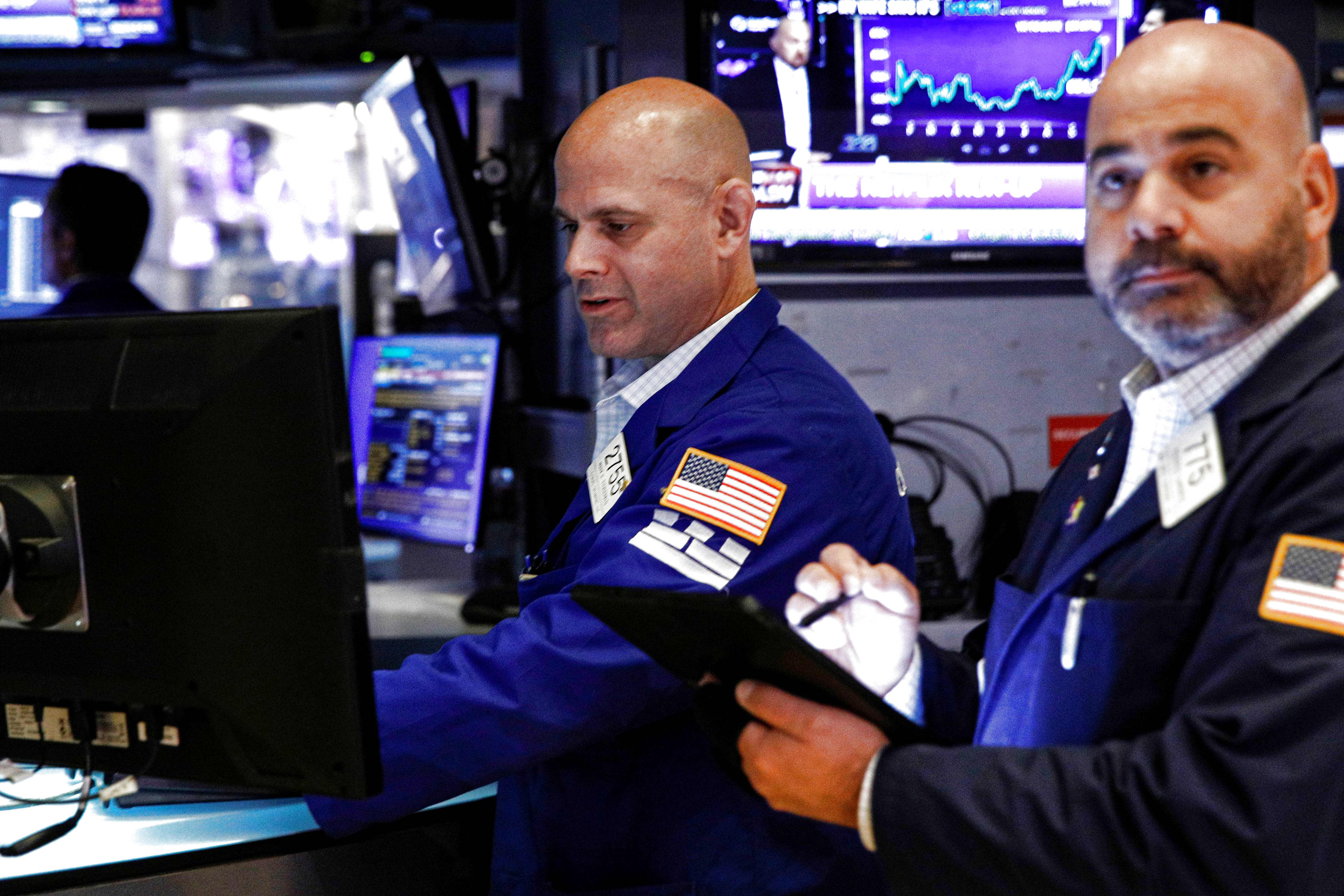Stocks add to records after Fed says economy is strong enough for it to slow pandemic bond buying

Stocks rose to new records on Wednesday after the Federal Reserve made its long-anticipated announcement to slow the monthly bond purchases implemented during the pandemic.
Major averages climbed steadily into the green as the central bank said it will begin to scale back the bond buying later this month and reiterated that it would be in no rush to raise interest rates after finishing the taper next year.
The Dow Jones Industrial Average rose about 85 points, after being down more than 160 points earlier in the session, and it an intraday record. The S&P 500 traded up 0.5% to a new intraday high. The Nasdaq Composite added 0.8% and hit an intraday record. The small-cap benchmark Russell 2000 rose more than 2% to a new intraday high, bringing its weekly gains to about 5%.
The Fed announced Wednesday that it will start to taper its bond-buying program that was put in place to prop up the economy during the pandemic.
The central bank also subtly reframed its stance on inflation, acknowledging that price increases have been more rapid and persistent than central bankers had expected. However, the Fed’s statement still characterized the rising prices as “transitory,” which could push the timeline for interest rates hikes further into the future.
“Our decision today to begin tapering our asset purchases does not imply any direct signal regarding our interest rate policy. We continue to articulate a different and more stringent test for the economic conditions that would need to be met before raising the federal funds rate,” Federal Reserve Chairman Jerome Powell said his post-meeting news conference Wednesday afternoon.
“The fact they continue to describe inflation as transitory suggests they’re going to continue to stay lower for longer than many are anticipating,” said Michael Arone of State Street Global Advisors.
Tapering of bond purchases will start “later this month” and will include reductions of $15 billion each month from the current $120 billion a month that the Fed is buying. This amount was in line with expectations. However, the Fed said it is prepared to alter the pace of purchases if warranted by changes in the economic outlook.
A slew of corporate earnings jolted certain equities on Wednesday. Lyft jumped 8% on strong third-quarter results and CVS Health rose more than 4% on better-than-expected earnings.
Zillow fell more than 21% after announcing it will close its home buying and flipping business. Shares of Bed Bath & Beyond rose on a partnership announcement with Kroger but the 20% surge that followed was likely fueled by a short squeeze.
Activision shares tumbled, falling about 15% after it said the launch of two games would be delayed. The company also issued a weaker holiday outlook though it did beat profit estimates for the quarter.
Of the S&P 500 companies that have reported so far this earnings season, 80.9% of them have beat consensus expectations, according to FactSet. That’s despite ongoing supply chain disruptions, labor challenges, commodity inflation, central bank policy and Covid risk.
“Stocks are like the Energizer Bunny, as they continue to soar to new highs and show no signs of tiring,” said Ryan Detrick, chief market strategist for LPL Financial. “We understand all of the worries out there, but the bottom line is earnings continue to come in way better than expected and are helping to justify stocks are current levels.”
All three major averages closed at records for the third session in a row on Tuesday. Those highs are making a potential year-end rally more conceivable to investors.
Wednesday’s ADP report showed that private job creation rose in October, thanks to a burst in hiring in the hospitality sector. Companies added 571,000 for the month, beating the 395,000 Dow Jones estimate and just ahead of September’s downwardly revised 523,000. It was the best month for jobs since June.




